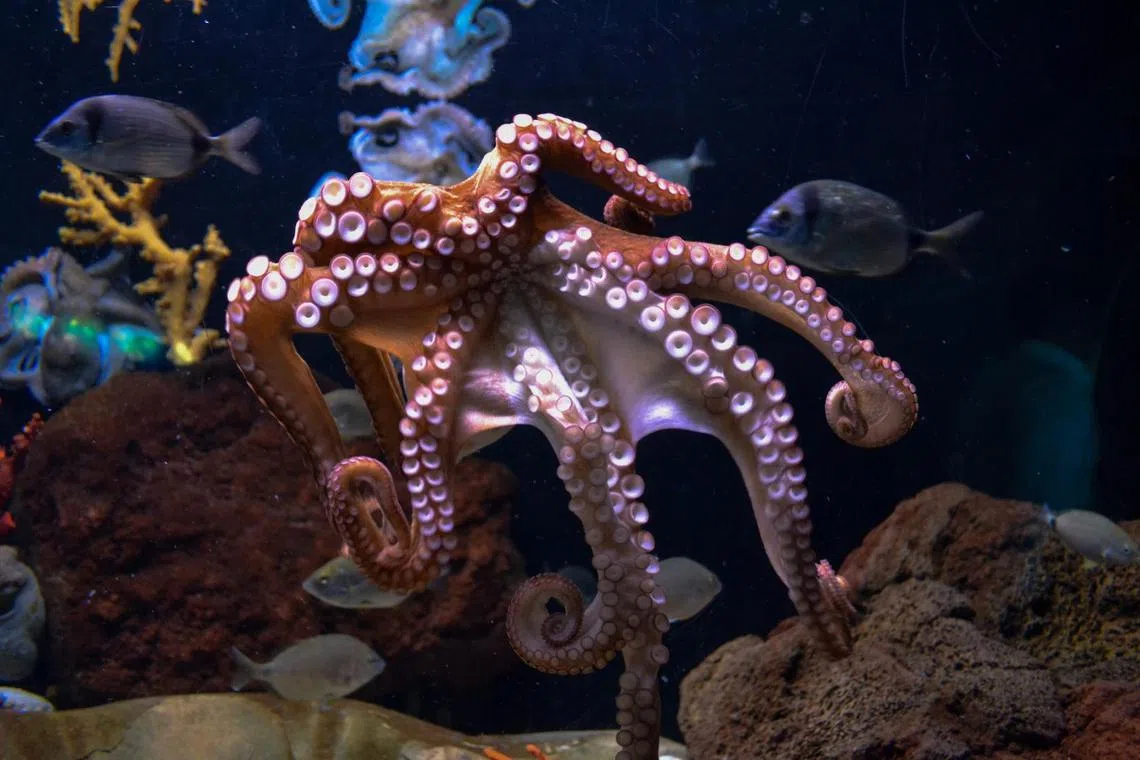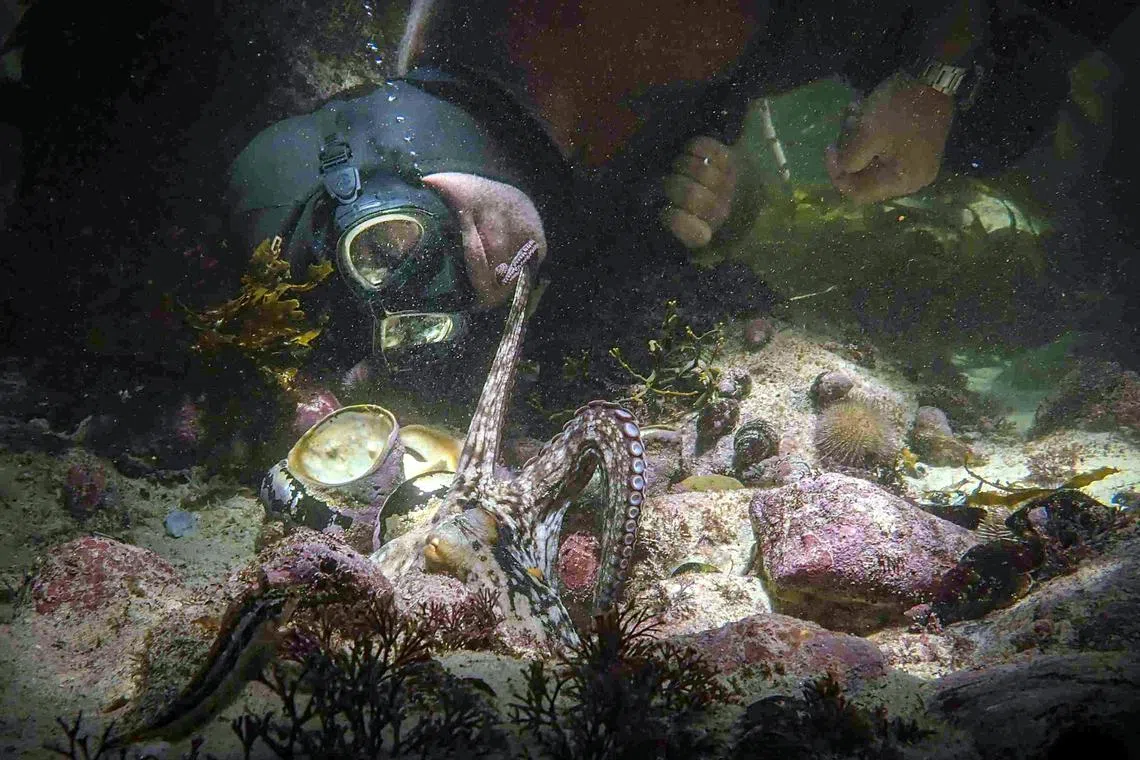Scientists slam ‘cruel’ proposal for world’s first octopus farm
Sign up now: Get ST's newsletters delivered to your inbox

The plan will see octopi grouped together in tanks and exposed to round-the-clock unnatural light in a two-storey building.
PHOTO: UNSPLASH
A plan by a Spanish multinational company to set up the world’s first octopus farm has drawn flak,
Nueva Pescanova is planning to rear about one million octopuses for food every year at a farm in Spain’s Canary Islands, according to confidential documents leaked to British broadcaster BBC.
The plan will see octopuses – which are solitary creatures that dwell mostly in the dark – grouped together in tanks and exposed to round-the-clock unnatural light in a two-storey building.
The documents, uncovered by animal protection lobby group Eurogroup for Animals, state that the octopuses will be fed with “fish discards and by-products”. They will be killed by being placed in water chilled to minus 3 deg C, a process scientists called cruel.
Nueva Pescanova denies that the animals will suffer, but scientists and animal welfare campaigners are unconvinced.
“To kill them with ice would be a slow death... it would be very cruel and should not be allowed,” Professor Peter Tse, a cognitive neuroscientist at Dartmouth University, was quoted as saying by the BBC.
Animal welfare organisation Compassion in World Farming, which opposes the construction of the farm, said around one in five octopuses would die in confinement before reaching full maturity.
“We implore the Canary Islands authorities to reject Nueva Pescanova’s plans and we urge the European Union to ban octopus farming as part of its current legislative review,” said Dr Elena Lara, research manager at Compassion in World Farming.
“It will inflict unnecessary suffering on these intelligent, sentient and fascinating creatures, which need to explore and engage with the environment as part of their natural behaviour.”
According to the BBC, there are no rules regarding the welfare of octopuses as the creatures have never been farmed commercially.
However, studies have shown that the method of killing fish using “ice slurry” causes them to experience stress and a slow death.
Octopuses are believed to be highly intelligent, more so than any other kind of invertebrates, but their learning ability is still much debated among biologists.
The Oscar-winning film My Octopus Teacher in 2020 brought to wider public attention the animals’ advanced intellectual abilities.

The Oscar-winning film in 2020 My Octopus Teacher brought to wider public attention the animals’ advanced intellectual abilities.
PHOTO: NETFLIX
There are already attempts to establish similar octopus farms in other parts of the world, such as Mexico and Japan.
In February, the US state of Washington signalled a move towards banning octopus farming, which would be a first.
In Hawaii, Kanaloa Octopus Farm, the only active octopus farm in the United States, closed recently following a campaign by Compassion in World Farming.
Octopus has become an increasingly popular food in recent decades, particularly in Spain. As a result, wild octopus numbers are dwindling.
In 2015, the number of octopuses caught around the world reached a high of 400,000 tonnes – 10 times more than in 1950.



